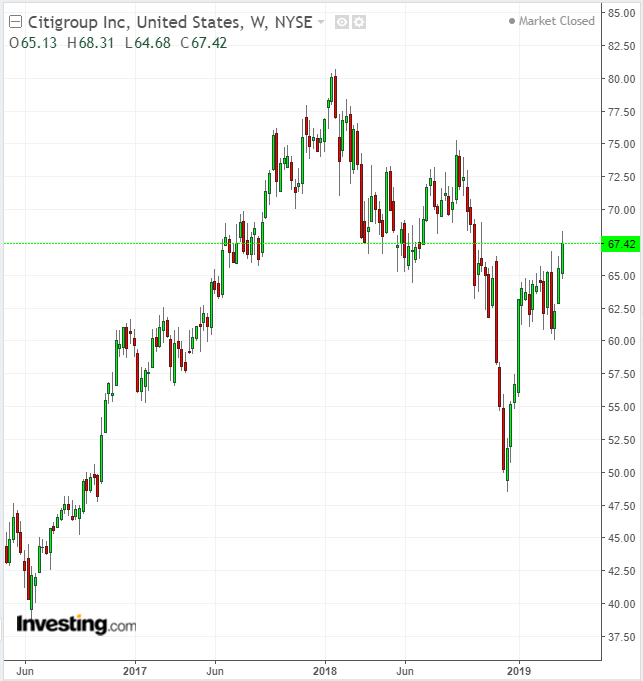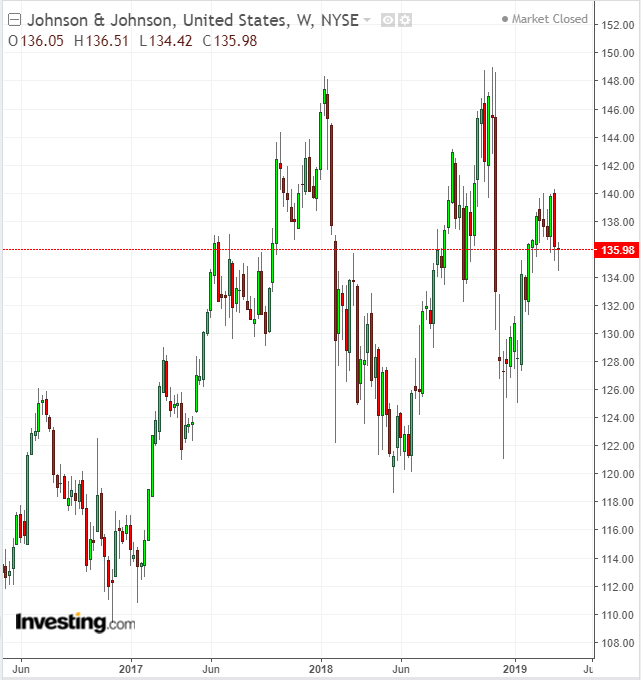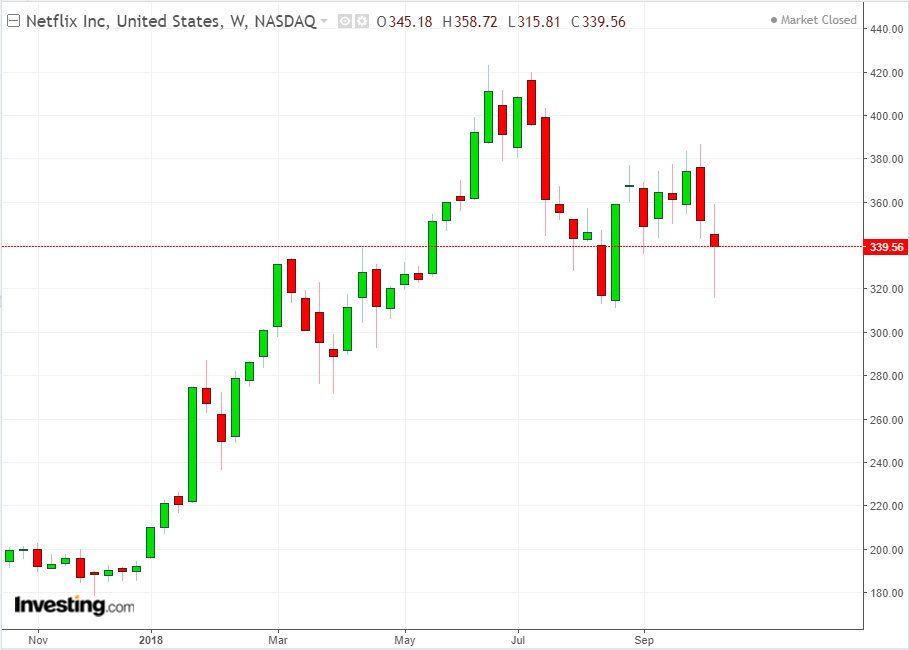With equity markets having regained their momentum as they approach record high levels, this coming week will be all about corporate America. Some of the largest U.S. companies are scheduled to report first quarter earnings amid fears of economic slowdown and an earnings recession.
Investors will be keen to know whether future guidance is in sync with what’s happening in equity markets. Indeed, any indication of an earnings slowdown going forward could spoil the ongoing rally that's pushed the S&P 500 closer to its all-time high of 2,940.
Below, three big stocks from different sectors—each releasing earnings reports—that we're monitoring in the coming week:
1. Citigroup
One of the biggest global banks, Citigroup (NYSE:C), will report first-quarter earnings before the market opens on Monday, April 15. The lender’s earnings and its future guidance are important for markets in order to judge the health of consumer finances as well as the economy in general.

Citigroup shares have benefited from the lender’s sustained cost-cutting during the past decade and re-balancing of its portfolio. Citigroup shares have surged almost 25% this year, outperforming the benchmark KBW Bank Index which is up 14% YTD.
The stock rose more than 2% on Friday to close at $67.42 after JPMorgan & Chase (NYSE:JPM) surprised investors by reporting strong numbers despite fears of a slowdown in consumer spending amid the U.S. government shutdown. Citigroup may post $1.8 a share profit, up from $1.68 from the same period a year ago, according to analysts' average forecasts. Sales are likely to rise to $18.63 billion.
Along with the bottom line numbers, investors will also focus on Citigroup’s rapidly improving efficiency ratio, or expenses as a percentage of revenue. This metric has come in at less than 60% for the past four years, making Citi the only major global bank able to maintain such a winning streak.
2. Johnson & Johnson
Global healthcare giant Johnson & Johnson (NYSE:JNJ), will report first quarter earnings before the market opens on Tuesday, April 16. The stock has been under pressure during the past one year on concerns that the increasing number of legal disputes related to the company’s baby powder could damage earnings and its future growth potential.

In July, a jury ordered the company to pay $4.69 billion to women who claimed asbestos in that product caused them to develop ovarian cancer. On Dec. 14, shares plunged more than 10% after a Reuters report said the company knew for decades that asbestos was sometimes present in its baby powder.
At present, the company is facing more than 13,000 suits blaming its talc-based products for causing mesothelioma and ovarian cancer. More than two-dozen trials have been scheduled in U.S. courts this year, according to Bloomberg.
In its latest earnings report, J&J might try to move on by showing some path forward, to regain investor confidence. Year to-date, JNJ shares have gained around 7%, closing at $135.98 on Friday. Analysts on average forecast Q1 profit of $2.04 a share, down from $2.06 a share during the same period a year ago. Sales are likely to fall 2% to $19.61 billion.
3. Netflix
Netflix (NASDAQ:NFLX) will also report its Q1 earnings on Tuesday, after the market close. Shares of the video streaming giant fell more than 4% on Friday, to close at $351.14 after Disney (NYSE:DIS) provided details of its own streaming service, Disney+, which will launch on November 12 and directly compete with Netflix at a much lower monthly price.

The threat of competition from other media players is one of the main risks that could derail Netflix's upward momentum since the beginning of the year, with shares gaining more than 16% since the start of 2019. When the company releases its earnings report this week, investors and analysts will zero in on the company's key metric—subscriber growth. It's the bottom-line number that's crucial to satisfy growth-hungry investors.
For the first quarter, Netflix expects to add another 8.9 million subscribers. On average, analysts anticipate the company will report $0.57 a share profit on sales of $4.5 billion. But beneath these seemingly-rosy forecasts, we see danger lurking. Growth is plateauing in the streaming entertainment giant's U.S. home market, from which it derives most of its revenue.
The internet entertainment juggernaut expects to have added 1.6 million new paying customers in the U.S. in Q1, down from the 2.3 million it added in the same period a year ago. Investors may be willing to ignore that deceleration in growth as long as Netflix shows overall growth while remaining a strong global brand.
